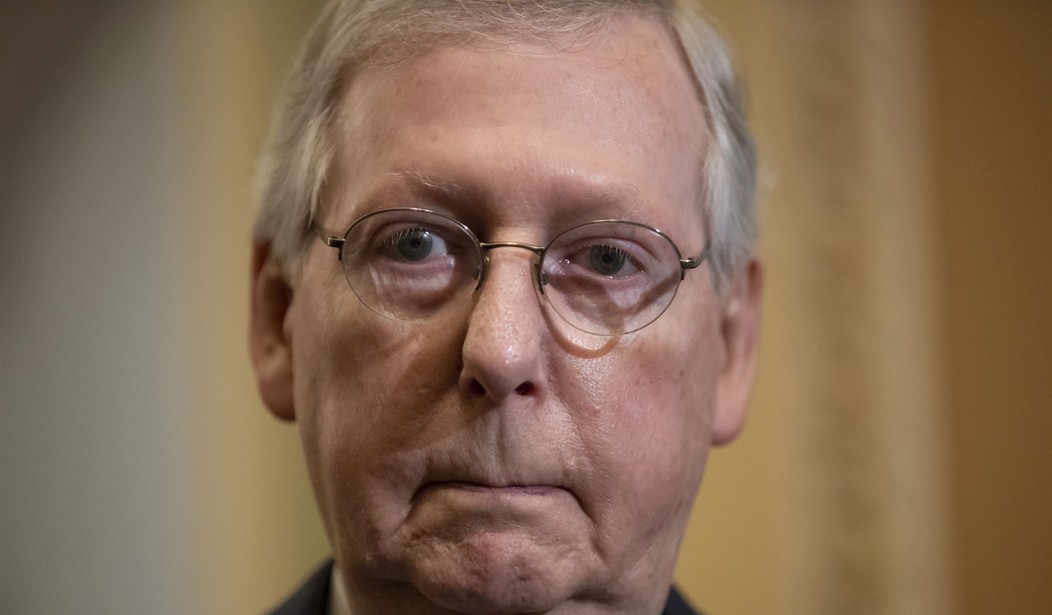As I pointed out last week, there are a range of estimates out there about how House Democrats will perform in the midterms. The low side expectation right now is that Republicans will pick up 15 seats but the high side estimate is over 40. Either way, Democrats lose control of the House for the rest of Biden’s term.
Today, Matt Yglesias’ Substack site, Slow Boring, has a piece arguing that things are looking just as bad for Democrats in the Senate. Author Simon Bazelon starts by looking at the generic ballot average at Five Thirty Eight. By setting aside undecided voters, he finds Democrats are actually polling slightly above their historic average during the midterms right now. But there’s a catch.
Traditionally, the President’s party averages roughly 47.5% of the two-party vote1 in midterms. Right now, in FiveThirtyEight’s average of public polls, Democrats are polling at 48.7%. However, the President’s party also tends to decline in standing as the midterms approach, as the graph below shows (you can read more about the historical evidence for this decline here)…
Additionally, polls have been biased towards Democrats in two of the last three cycles, and there is reason to think this bias will persist. The current 48.7% polling average may well be an overestimation.
Between those two factors, it’s reasonable to assume that Democrats are looking at a vote share between 47% and 48.5% this cycle. This means Republicans will probably win the generic ballot by between three and six percent, and the median scenario is probably Republicans winning by around 4.5%. Since Joe Biden won by 4.5% in 2020, this would mean that the national environment has shifted 9 percentage points to the right.
For comparison purposes, when Cook Political Report published its analysis of House races, they suggested the generic ballot had shifted 7 points toward the GOP since 2020. The Slow Boring analysis puts the shift at 9 points. The result of this is that Senate Democrats who won in states Biden won by less than 9 points are probably in trouble. Specifically, Sen. Mark Kelly in Arizona, Sen. Raphael Warnock in Georgia, Sen. Maggie Hassan in New Hampshire and Sen. Catherine Cortez-Masto in Nevada. (Rue Teixeira wrote and analysis of Cortez-Masto’s chances last week which I wrote about here.)
So Democrats are likely to lose 3-4 Senate seats this year and that’s just the start of their troubles. Bazelon goes on to point out that 2024 is looking ever worse for Democrats. There are six Senate seats up for reelection in 2024 in states where Biden either lost the state or won narrowly. If Democrats perform close to their historical average in that election they have a good chance of losing those six plus another two more that would be on the bubble. Again, that’s if they perform close to their average. But obviously if Democratic enthusiasm remains low then the historical average won’t save them. All of this culminates in a chart which combines the potential outcome of the next two elections into a range of probabilities:

Remember, we started this by saying Democrats would probably wind up with about 47% of the vote in the midterms, so if you start with that in the left column and move across the best case scenario for Democrats is that they’ll have (rounding up) 41 senators after the 2024 election. And the worst case is (rounding up) 39 senators. Obviously things change dramatically once you have 60 Republicans in the Senate and that’s a real possibility.
Of course one of the Senators on the chopping block in 2024 is Joe Manchin. He’s been defying gravity in West Virginia for a while. So maybe he could keep doing that. On the other hand, Manchin will be 77 years old by the time of the 2024 election. Will he really want to commit for another six years? If he isn’t up for that is there another Democrat who could win in West Virginia?
The bottom line is that a scenario where Democrats hold the Senate looks extremely unlikely at this point. On the contrary, it may be time to start worrying about the coming Republican supermajority.








Join the conversation as a VIP Member